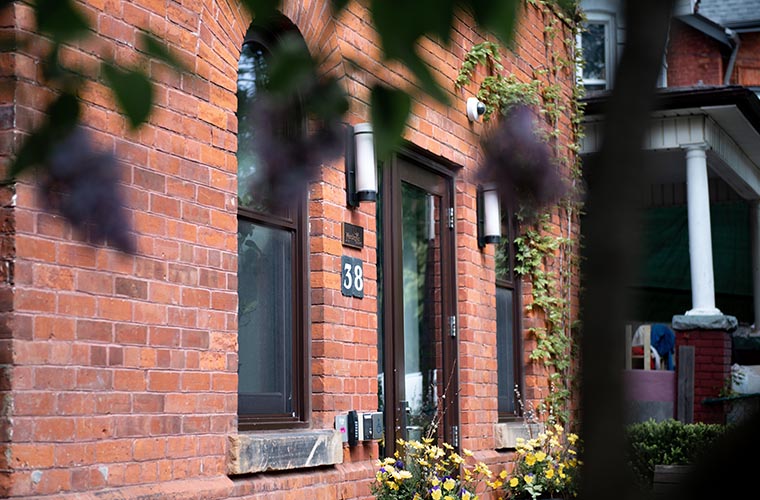The Kensington Hospice overcomes pandemic barriers to help community members at the end of their life.
COVID-19 has thrown much of the world in disarray, but for those at end-of-life, dying has become much more complicated.
Hospice palliative care is a philosophy that focuses on helping those who are dying and their families navigate the journey with dignity. At Kensington Hospice, our teams do that by creating space for families to be together and to focus on living those final moments well. The team’s commitment to these goals has never wavered but during this past year – with a global pandemic making everything more difficult – they’ve had to work extra hard to help our community.
“Hospice palliative care is focused on autonomy and self-direction. Yet in these circumstances, people felt disempowered; and that is nobody’s fault. The pandemic necessitates changes to protect them,” says Rami Shami, Case Manager at the Hospice.
With the declaration of the global pandemic in March, many health care settings, including Kensington Hospice, were asked to limit visitors.
The guidelines for other care settings – like long-term care and hospitals - were clear. If someone was actively dying, a family member could visit. In a residential hospice, these guidelines were at odds with much of what hospice care provides. While not all residents would die soon, they were in The Hospice to be with their loved ones, while their care needs were provided for.
This was a particularly difficult challenge for The Hospice team. “If you ask any frontline clinicians what has been most challenging, it’s visitor restrictions and trying really hard to advocate for people to come in and be with their loved ones,” explained Dr. Warren Lewin, the Medical Director of the Hospice.
Dr. Lewin and the Hospice team worked with other hospices and other palliative care units to craft a visitor policy that allowed some family members to be at their loved one’s bedside, while still keeping our community safe.
The care team also stepped in to help connect families and support residents when family could not be there.
As Shami remembers, “we had to sit at the bedside more, spend more time, use other tools like music, engaging our art and music therapists more. Honestly, we spoke to the difficulties.”
From just sitting more with residents to calling family members, The Hospice team made sure that care never stopped through the pandemic. They even got a new co-worker to help – VAL. VAL, short for virtual assistant with legs, is a mobile video conferencing unit who can be wheeled into a resident’s room and let family members join them virtually.
Tools like VAL have been invaluable. Family and loved ones are a critical part of hospice care because as Dr. Lewin explained, “family presence is really a part of hospice care. We care for patients and families. That is what makes Hospice Palliative Care unique – our patient includes the family. And to be able to do our jobs best we need each member present.”
Dr. Warren Lewin, current medical director at Kensington Hospice, discusses the importance of hospice care and the history of the Hospice with Dr. Gary Rodin, founding medical director of Kensington Hospice.
In fact, caring for family members has been just as important as residents. Much of that care is the responsibility of our case management team – Rami Shami and Evelyn Cheung.
As Shami recalls, “I spent a lot of time with families, hearing their experiences and helping to support the grief process. They are not just grieving the person that is dying but their ability to show love to that person. “
Grief is a natural part of the dying process – both for residents and their family. Shami and Cheung help community members work through their grief and help those members find moments to connect and express that grief.
Shami says that for him it’s about acknowledging the difficulty of grieving right now: “I had to be very mindful and aware of that. The restrictions due to COVID-19 exasperated the grief, so I had to speak directly to the grief already being experienced.”
But for him there are bigger conversations at stake – this pandemic is traumatic for all of us, and that trauma needs to be addressed: “The pandemic is traumatizing [for families, and we need to talk about it] and how it affects the grieving and dying experience.” Kensington Health joins others in the Canadian Grief Alliance to advocate for a National Grief Strategy, hoping to address the trauma of this pandemic for all Canadians.
Get more stories about Kensington Health in your inbox. Sign up for our newsletter.
